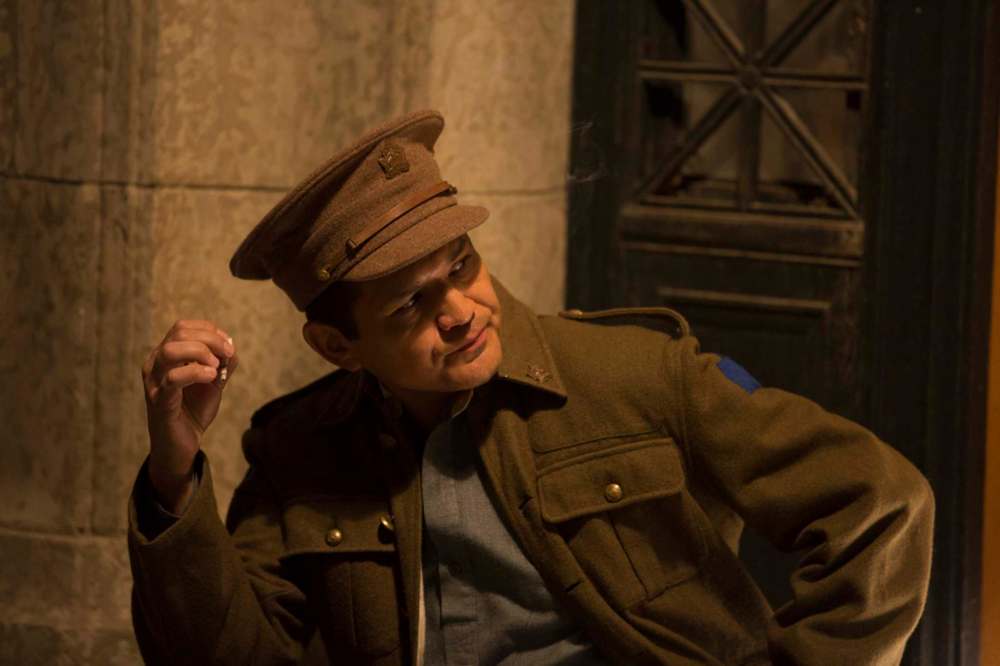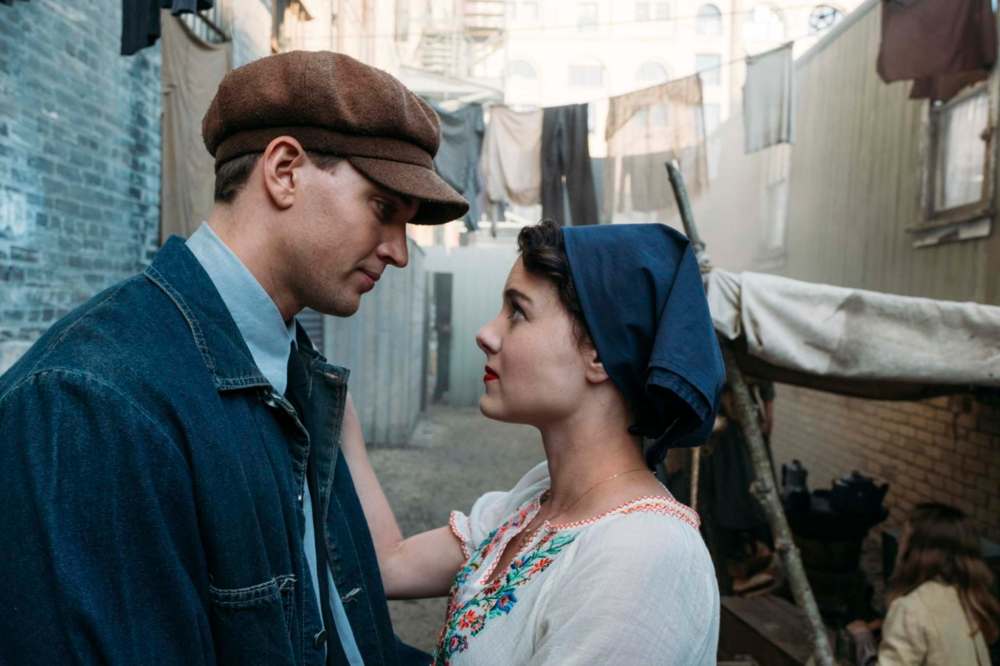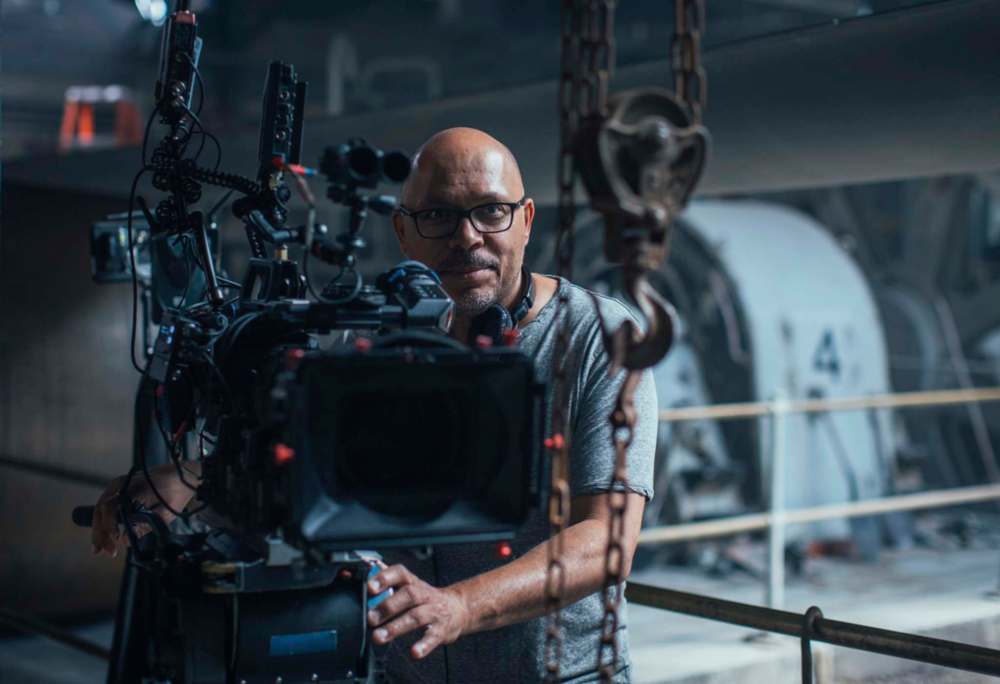Strike up the Stand Producer Schur seeks international distributor
Read this article for free:
or
Already have an account? Log in here »
To continue reading, please subscribe:
Monthly Digital Subscription
$0 for the first 4 weeks*
- Enjoy unlimited reading on winnipegfreepress.com
- Read the E-Edition, our digital replica newspaper
- Access News Break, our award-winning app
- Play interactive puzzles
*No charge for 4 weeks then price increases to the regular rate of $19.00 plus GST every four weeks. Offer available to new and qualified returning subscribers only. Cancel any time.
Monthly Digital Subscription
$4.75/week*
- Enjoy unlimited reading on winnipegfreepress.com
- Read the E-Edition, our digital replica newspaper
- Access News Break, our award-winning app
- Play interactive puzzles
*Billed as $19 plus GST every four weeks. Cancel any time.
To continue reading, please subscribe:
Add Free Press access to your Brandon Sun subscription for only an additional
$1 for the first 4 weeks*
*Your next subscription payment will increase by $1.00 and you will be charged $16.99 plus GST for four weeks. After four weeks, your payment will increase to $23.99 plus GST every four weeks.
Read unlimited articles for free today:
or
Already have an account? Log in here »
Hey there, time traveller!
This article was published 23/11/2018 (2581 days ago), so information in it may no longer be current.
What was once a Strike! is now a Stand!
In its transition from stage musical to film, Winnipeg composer-playwright Danny Schur’s Strike!: The Musical has transmogrified to the movie Stand!

Filmed over August and September in Winnipeg, the feature film adaptation directed by Robert Adetuyi (Stomp the Yard) spins a dramatic musical from the raw material of the Winnipeg General Strike of 1919, often incorporating the same locations of the event itself. The film stars Gregg Henry as Mike Sokolowski, the martyred striker; Marshall Williams, the Winnipeg-born actor who made a name for himself on Glee, as his son Stefan; and Laura Wiggins (Shameless) as Mike’s Jewish neighbour, who falls in love with Stefan over his father Mike’s objections.
The world got a glimpse of Stand! via a teaser trailer on YouTube in which the action of the movie is set against the new song, Stand, performed by actor Lisa Bell. It presents a more diverse-looking cast of characters than one might expect if you’ve seen any of the Winnipeg stage productions of the musical, which Schur co-wrote with playwright Rick Chafe.
https://youtu.be/sAfLUvooKzI
Schur, taking a break from editing the film at Mid Canada Production Services, affirms the movie version has changed in no small part to the urging of director Adetuyi.
“In one of our first conversations, Rob said to me: ‘This is a really white movie,’” Schur says. “He said, ‘We can make it more contemporary, we can go more Hamilton and forget about period music.’
“And specifically, he said: ‘Let’s put people of colour on screen. I’m pretty sure they were there (in Winnipeg), they were just never in the pictures.’”
Research by both Schur and Chafe proved Adetuyi correct. Hence, the stage role of an Irish maid named Emma became a black refugee from racial strife in Oklahoma, played by Bell. A war veteran named O’Reilly becomes a Métis soldier named Gabriel, played by Gabriel Daniels.
“The role was knocked out of the park by Gabriel Daniels,” Schur says. “And Lisa Bell will blow your mind.”
The song Bell performs highlights the story’s enhanced relevance in the current political climate, Schur says.
“When I wrote the stage play in 2003, I wondered if anybody is going to care about this,” he says. “Unfortunately, with every passing year, all those themes are actually coming more to the foreground: immigrant rights, nativism, all the marginalization of particular groups.
“It’s funny, I wrote the song Stand as a closing-credits song and I was in a very ‘Black Lives Matter’ mode that day, and that’s specifically what I wrote it about,” he says. “When the director heard it, and he’s also a man of colour, he thought it was a Black Lives Matter thing, too, but then other people, whatever their experience was, said, ‘Oh my God, you wrote that as a #MeToo thing’ or ‘You wrote that as an LGBT thing.’
“So, somehow, metaphorically, the General Strike has turned into a parable of our times.”

Schur repeatedly uses the word “pumped” to describe his current state of mind towards the project, but he admits the filmmaking process was exhausting for him as a producer.
“I had no idea what kind of toll producing a $7-million movie would take on me, and this summer, I succumbed to the worst insomnia ever,” he says. “If I slept, it was for an hour and it was brutal.
“So the shoot was very, very hard on me: 150 employees, $600 grand a week in payroll and I’m not really built for that, I found out,” he says, laughing. “I realize I’m a composer and I like to work in teams, but I mostly work alone.
“But the day we finished shooting, I started sleeping again,” he says. “And then when I saw the rough cut, the director’s cut, honest to God, there was not a more relieved guy on the planet.”

It helped him as a producer that a major component of any film — the cameras — were supplied by Blackmagic, a camera producer launching a new movie camera, he says.
“We did a deal with Blackmagic where they provided all of the cameras and that’s a significant sponsorship, at no cost to us, in exchange for us being the first feature film that uses that camera,” he says, adding that Blackmagic will also promote Stand! with the release of the company’s own “making of” short film about the cameras.
“Within two weeks, they’re releasing their trailer and they’re going worldwide — Variety, Hollywood Reporter, etc. — about our movie being the first to use the camera,” Schur says. “Already, in Hollywood, people are flipping out about how good the images look.”

Stand! does not yet have a distributor, but Schur says he hopes to take it to film marketplaces, including Cannes.
“That’s totally suited for our timing and so we’re all about Cannes,” he says of the festival on famed French Riviera. “Then we’re hoping for a North American première in Toronto at the (Toronto International) film festival,” he says. The Canadian festival is appropriate, Schur says, because of the entire cast, only two actors — Henry and Wiggins — are American and almost all the rest of the actors are from Winnipeg.
“This really is a Winnipeg movie,” he says. “A Winnipeg story about Winnipeg’s past, and yet we’re telling a story that is super-international.”
randall.king@freepress.mb.ca
Twitter: @FreepKing

In a way, Randall King was born into the entertainment beat.
Our newsroom depends on a growing audience of readers to power our journalism. If you are not a paid reader, please consider becoming a subscriber.
Our newsroom depends on its audience of readers to power our journalism. Thank you for your support.











